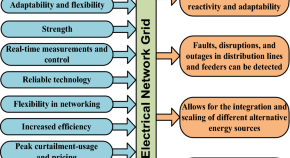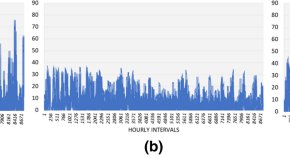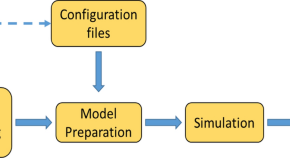Information refining and big data analysis on the crisis on the fossil fuel market to identify of Russia’s hostile narratives towards European Union countries
Authors (first, second and last of 5)

Collection
As more investors and companies seek greater clarity and confidence in accounting for long-term climate risks and opportunities, businesses are adapting to the "energy transition", that is, a transformation of the global energy sector from fossil-based systems of energy production and consumption to sustainable energy sources. Switching from nonrenewable energy sources like oil, natural gas, and coal to renewable energy is made possible by technological advancements and a societal push toward sustainability. After years of depending on regulation for growth in the sector, renewable energy sources have become a powerful and cost-effective source of electricity. Generating power from renewables is only part of the global energy transition. Mass introduction of electric transportation infrastructure and energy storage, coupled with greater usage of technologies to improve energy efficiency, are also driving this movement. Consumers are increasingly turning to electrification for power transportation, making the transition to electric vehicles one of the largest potential areas for electrification. Another central factor for renewable energy and electrification (and the energy transition overall) is renewable energy storage, which could solve the production problems many renewable energy technologies face. Though long seen as the missing link between intermittent renewable power and constant reliability, energy storage has begun playing a broader role in the energy transition, with the potential to enable the eventual decarbonization of energy systems. Global regulatory structures in the realm of energy transition have been fairly uneven. In Europe, regulators have taken a leading role in pushing toward a review on how to reach the carbon-neutral economy by launching EU’s net-zero greenhouse gas emissions target for 2050. Many EU countries have been outspoken about their energy and electrification priorities by publicly setting related targets. Led in large part by China, emerging economies are also trying to determine how to increase energy access and sustain development while also transitioning toward cleaner energy sources. In the US, there is growing political momentum around lower greenhouse gas-emitting power generation and a clean energy economy.
The keywords are: energy transition; sustainable energy strategies; renewable energy sources; sustainable energy systems; energy economics; energy regulation
Dr. Andreas Poullikkas, Cyprus Energy Regulatory Authority, Cyprus. He is currently the Chairman of the Cyprus Energy Regulatory Authority (CERA) and he was for several years the Chairman of the Cyprus Energy Strategy Council (both appointments by the President of Cyprus). In his professional career he has worked for academic institutions and for the industry, such as, a Visiting Faculty at Harvard University, USA, the Cyprus University of Technology (Professor of Power Systems and Chair of the Department of Electrical Engineering) and the Electricity Authority of Cyprus (founder and director of the Research and Development Department).




